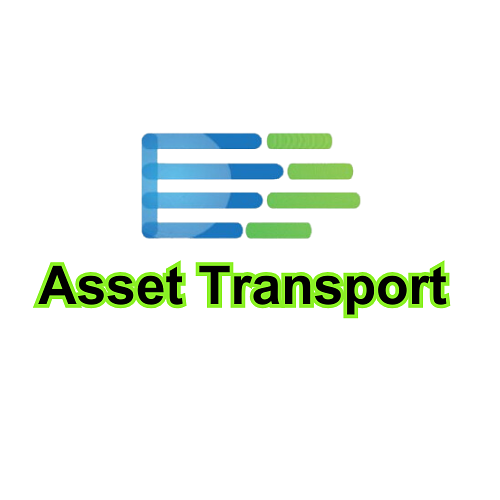Understanding the Role of an Owner-Operator
Choosing to become an owner-operator in the trucking industry is a major decision that combines the appeal of independence with the challenges of business management. Unlike company drivers, owner-operators own and manage their trucks, giving them control over routes, schedules, and operational aspects. This freedom comes with distinct responsibilities and benefits.
In this article, we'll explore the workings of owner-operators, outlining their daily tasks, the qualifications needed, the types of trucks and freight they handle, the associated costs, and their earning potential.
What is an Owner-Operator?
An owner-operator is a self-employed driver who owns and operates their own truck. They are responsible for every facet of their business, including truck maintenance, contract acquisition, and financial management. This level of control provides flexibility but requires a strong commitment and business acumen.
Key Responsibilities
1. Truck Purchase and Maintenance Owner-operators are tasked with buying and maintaining their trucks. This includes regular upkeep, repairs, and upgrades to ensure compliance with safety and environmental standards.
2. Contract Acquisition They must source their own contracts, whether through direct relationships with shippers, load boards, or freight brokers. Building a reliable network and delivering consistent service are crucial for securing profitable contracts.
3. Financial Management Effective financial management is essential for owner-operators. They must track income and expenses, budget for maintenance, and set aside funds for taxes. Many opt for accounting software or professional accountants to manage their finances.
4. Regulatory Compliance Adhering to regulations from the Department of Transportation (DOT) and the Federal Motor Carrier Safety Administration (FMCSA) is necessary. This includes keeping accurate records, undergoing safety inspections, and ensuring legal compliance.
5. Marketing and Networking To expand their business, owner-operators need to market their services and build a network. This might include building a professional website, leveraging social media, participating in industry events, and becoming a member of trucking associations.
Requirements for Owner-Operators
1. Commercial Driver’s License (CDL) A valid CDL with appropriate endorsements is required for hauling different types of freight.
2. Experience While not always mandatory, experience as a company driver is beneficial. It helps in understanding the industry, building a network, and developing essential skills.
3. Financial Stability Purchasing a truck and other equipment requires substantial financial investment. Owner-operators often need loans or savings to cover initial costs.
4. Business Skills Running a successful owner-operator business demands knowledge in areas like financial management, marketing, and regulatory compliance.
Trucks
1. Acquiring a Truck The journey of an owner-operator starts with purchasing a truck. This involves careful financial planning and consideration of whether to buy new or used. Financing options, including leases and loans, are commonly used.
2. Maintenance and Repairs Regular maintenance is vital to prevent breakdowns and ensure smooth operation. This includes routine tasks like oil changes, tire rotations, brake inspections, and addressing unforeseen issues.
Freight
1. Types of Freight Owner-operators can choose to transport various types of freight such as dry goods, refrigerated items, and hazardous materials. Specializing in specific freight types can help secure targeted contracts.
2. Securing Loads Finding and securing loads is a critical task. Owner-operators use load boards, freight brokers, or direct connections with shippers to find suitable opportunities.
Expenses
1. Operational Costs Operating as an owner-operator involves costs such as fuel, maintenance, insurance, permits, and tolls. Effectively managing these expenses is essential for sustaining profitability.
2. Expense Management Effective budgeting and financial management are key to handling both regular and unexpected expenses.
Earnings
1. Potential Income Owner-operators have the potential to earn significantly more than company drivers. On average, they can make between $100,000 and $150,000 annually before expenses, though this varies based on freight type, mileage, and expense management.
2. Net Income After accounting for all costs, the take-home pay can be much lower than gross earnings. Good financial management is essential for maximizing net income.
Benefits and Challenges
Benefits:
● Autonomy: Owner-operators have the freedom to select their routes, clients, and schedules.
● Flexibility: Greater ability to balance work with personal life.
● Higher Earning Potential: They have the opportunity to earn more by managing contracts and expenses.
● Equipment Control: Ownership allows for customization and personal maintenance of the truck.
Challenges:
● Workload: Managing all aspects of the business, including driving, maintenance, and administration, can be demanding.
● Financial Risk: The upfront and ongoing costs can be substantial.
● Market Fluctuations: Earnings can be impacted by market conditions, fuel prices, and economic shifts.
● Regulatory Compliance: Staying compliant with regulations requires continuous effort.
Ready to Become an Owner-Operator?
If you’re considering a career as an owner-operator, Quality Carriers is here to help. We offer competitive earnings, access to high-quality equipment, and comprehensive support. Join us to benefit from our resources, including maintenance support and financial advice. Submit your application today and begin your journey with us!
Conclusion
Becoming an owner-operator offers a unique mix of independence, potential for higher earnings, and the satisfaction of managing your own business. Success in this role demands dedication, strong business skills, and a willingness to continuously adapt. If you're ready to take the plunge, carefully evaluate the benefits and challenges, and seek guidance from industry experts. With the right approach, a career as an owner-operator can be both rewarding and fulfilling.
Ready to Drive Your Success with Asset Transport?
If you’re eager to step into the world of owner-operators and want a partner to support your journey, Asset Transport is here for you. We offer competitive compensation, premium equipment, and a network of resources designed to help you thrive.
Join Asset Transport today to benefit from our comprehensive support, including expert advice on maintenance, financial management, and business growth. Take the first step towards a rewarding career as an owner-operator with us. Apply now and let’s drive success together!

